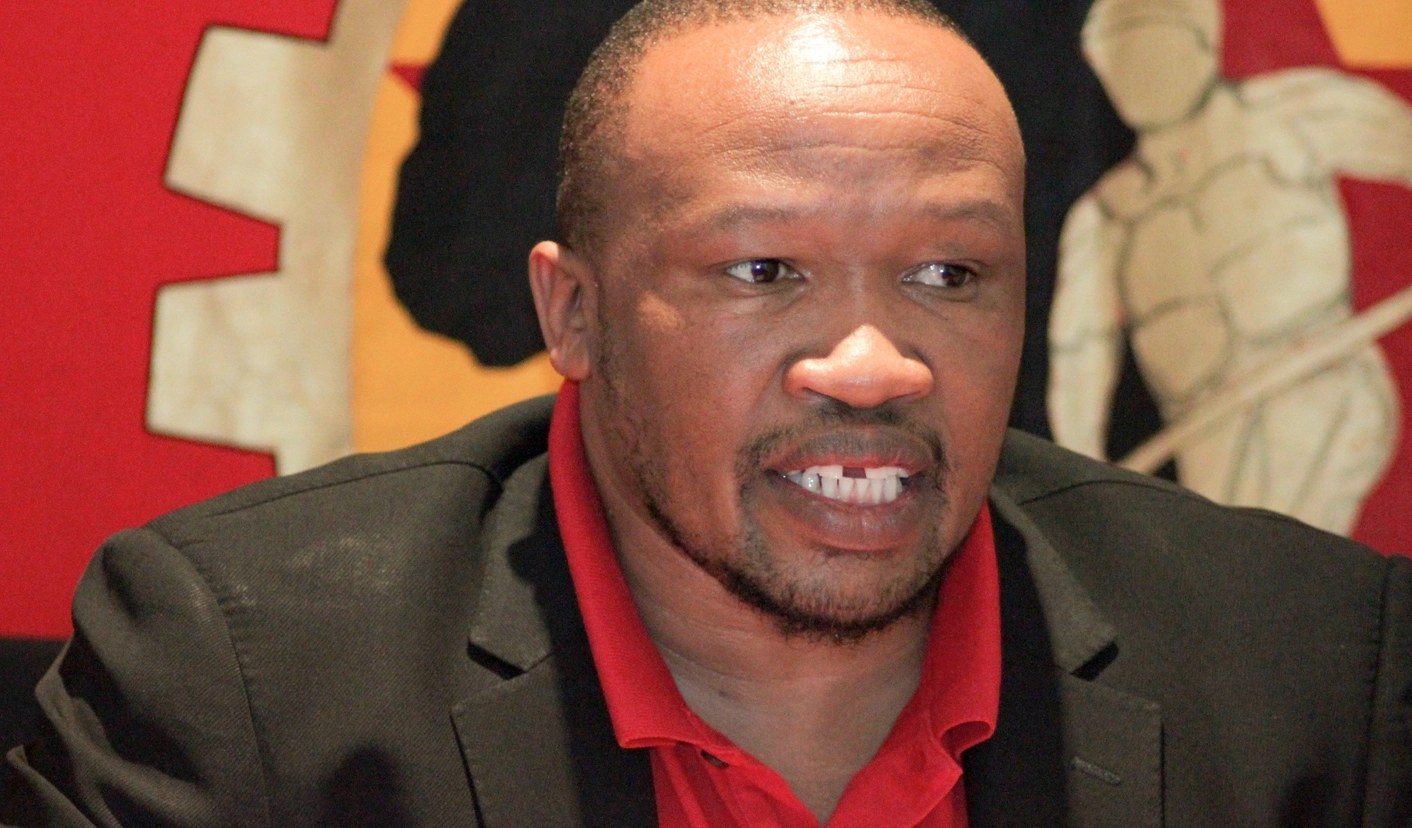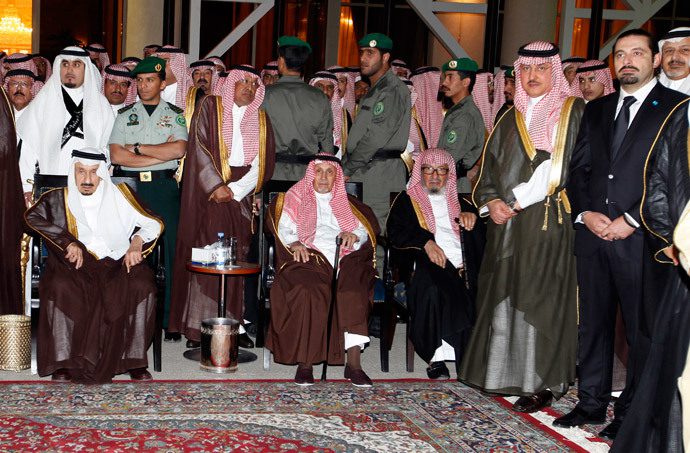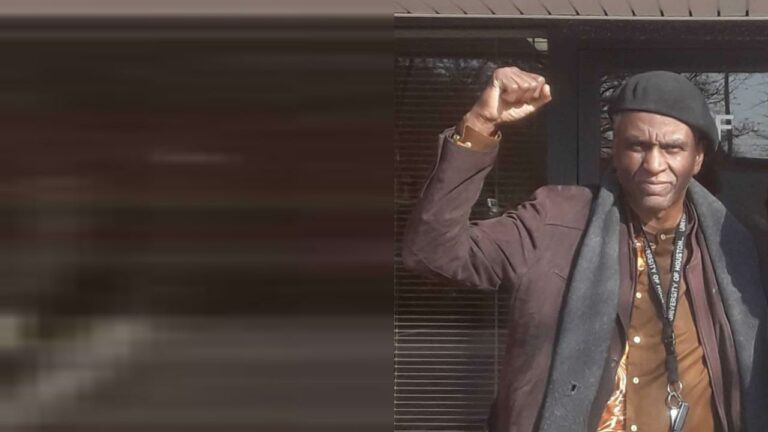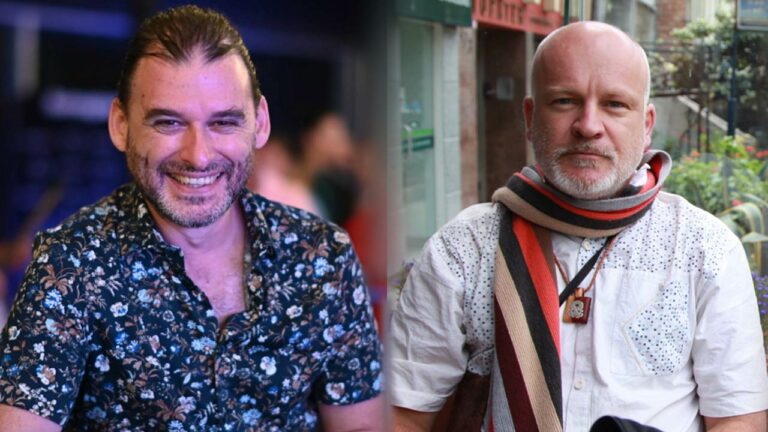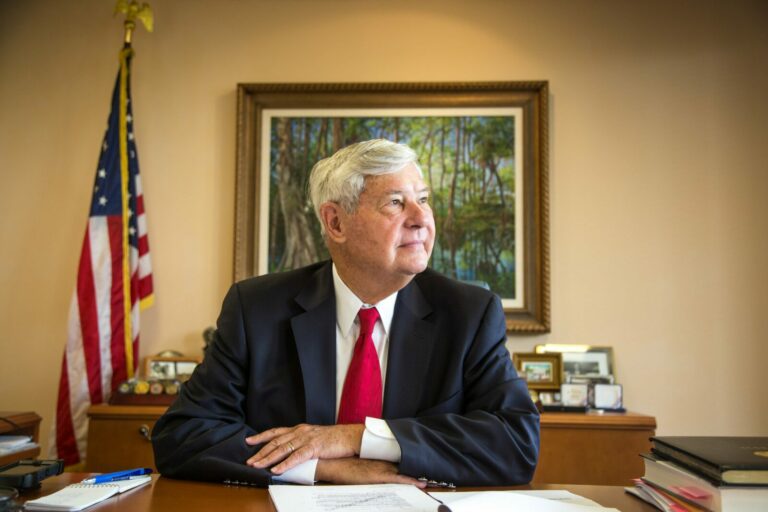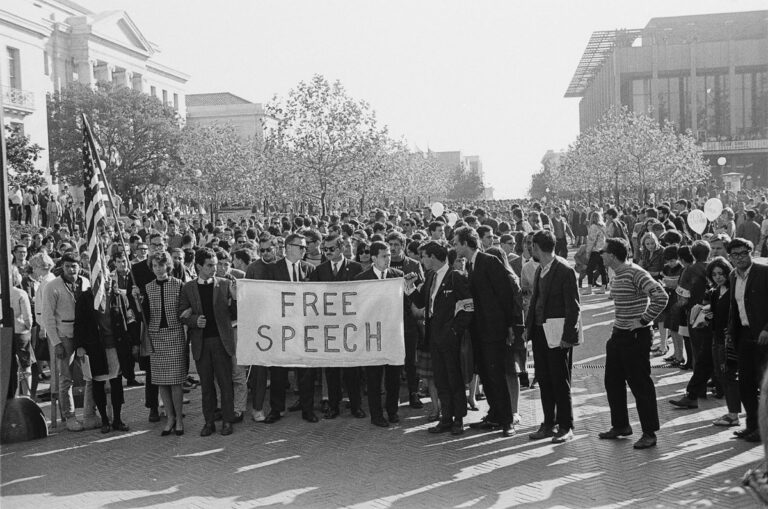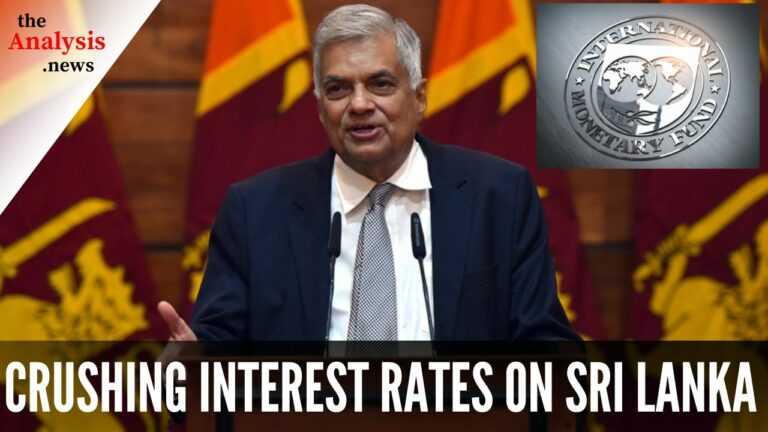At the Center of a Storm – Irvin Jim, General Secretary of the National Union of Metalworkers of South Africa on RAI (pt 1/3)
This interview was originally published on January 28, 2015. On Reality Asserts Itself, Mr. Jim tells host Paul Jay about h youth and radicalization in the fight against apartheid. Mr. Jim is now the leader of the largest union in South Africa with 340,000 members, which has recently broken with the ANC and is calling for a return to the principles of the Freedom Charter.
No posts
PAUL JAY, SENIOR EDITOR, TRNN: Welcome to Reality Asserts Itself. I’m Paul Jay. This is The Real News Network. The National Union of Metalworkers of South Africa is in the midst of the political storm. In 2013, it broke with the ANC, governing ANC, and in 2014 was expelled by COSATU, the largest trade union federation of South Africa. At the center of this storm is its president, Irvin Jim, and he now joins us in our studio in D.C. Thanks for joining us.
IRVIN JIM, PRESIDENT, NUMSA: Hi.
JAY: So, first of all, thank you very much for coming. And I know you’re exhausted. As you said, the people have been brutalizing you in interviews, and, unfortunately, we’re going to brutalize you a little more. As people who watch Reality Asserts Itself knows, we start with the personal back story most often and then get into some of the current issues, and we’re going to do that with Irvin. So start from the beginning. Where are you born in South Africa, and what is the political environment you grow up in?
JIM: Well, I’m the son of a farmworker. I grew up in the farms of Port Alfred, which is the Eastern Cape province in South Africa. And both my parents couldn’t read and write. I’m very proud of them. Without education, they pushed me and my siblings to be able to read and write and to go to school.
JAY: Did they own their own farm or they worked on it?
JIM: Not at all. My father was a farm laborer who was exploited. I literally experienced the brutality of the farm bosses that have completely transformed South Africa.
JAY: So he worked on a big–like, what amounts to, like, a plantation of sorts?
JIM: Well, we moved from one farm to another because there was no guarantees in terms of the Land Act of 1913. Farmworkers are the most abused and exploited. You could [incompr.] build a house for you. You build your own house. When they decide that they are not happy, they’d tell you how many cars you can have. If you increase and you reach a dispute, you must go.
JAY: As you grow up, you’re living with other farmworkers, I guess, farmworker families. When do you start to really get a sense how profoundly racist the society is that you’re living in?
JIM: Well, I think just there, I mean, you wouldn’t [incompr.] any person who is a farmboy who worked for a farm owner, you wouldn’t wear a hat when you speak to the Afrikaners, who were very racist. You needed to throw away your cap. And I think for me I was conscientized at an early age, because immediately I realized that there was something wrong with the system, because I love my father a lot, and I was in solidarity with him. Of course, you couldn’t do anything.
JAY: What was the level of political consciousness at home, amongst your father’s workforce?
JIM: Well, I think at an early age my father wouldn’t accept to be defiant when he will decide to leave this farm. But I guess I was very angry, because I thought it was very important for him to challenge the farm bosses. As a result of that, I think that was instrumental to basically champion, to be a champion within the family, to move from the farms into the city life. And when I finished my–before even I finished my [matriculation (?)], I succeeded to push the family into the city center.
JAY: And what did he do then? How old are you at this time?
JIM: I was very young. And he was–at the time, he could not be able to do anything. By the time we persuaded him there, he was already old. We needed to take over the responsibility of the family.
JAY: Now, I’m assuming that you at some point joined protests. So my question is: just how old are you [crosstalk] protests?
JIM: Well, my conscientization and my activism started really not when I was at work; it started when I was still a student. I was the leader of COSAS, which was a student organization at the time. Basically the–.
JAY: At what age is this?
JIM: Look, I mean, at a very early age in COSAS. And, I mean, knowing Bantu education, the first campaigns we took was to open up schools, because we wouldn’t be allowed to–for black children, they wouldn’t be allowed to access education. As you know, the ratio is too bad in education. We will have more than 50 people packed in one class. And as a result, in a community where I grew up called Motherwell in Port Elizabeth, we had to take up campaigns to harass the Bantu education system, to basically open up more schools. And indeed we did. We opened afternoon schools. In other words, there will be two shift of classes that are taking place. Others will be during the day. Others will be at night. And we carry on with campaigns to fight that basically the [Department of Education] must open up most schools. So my conscientization started before I became a worker.
JAY: Go back to your first time you go to a public protest. How old are you?
JIM: I can’t recall. I was very young.
JAY: What? Eight? Nine?
JIM: Well, I think around 14, 15. That’s how[, anyway, (?)] in the young protest.
JAY: And are you still on the farm?
JIM: I was out of the farm. I was in and out the farm. You could not survive the farms if you would have just stayed in the farm. I survived the farm because I had to combine both my activist life to be able to bring life into the farm, but also mix it with the small Port Alfred town, which was a holiday town next to us.
JAY: And in your early activism, how dangerous is it? I would guess it’s quite dangerous to start doing public agitations.
JIM: The apartheid system was very brutal. It had no mercy. The police, the white people as we know them, were racist in character. You knew that there was a group areas act. From five o’clock up, you could go to town, but within no time you must be out of town. And that has been the life of all black people in general, Africans in particular. They come into towns to service as domestic workers, to work, and in the evening they must get out. Otherwise they get arrested.
JAY: And what do you think helped shape you, that you’re willing to not just get active, but when you start to take a leadership role, you start putting yourself in the crosshairs. You become a target.
JIM: Well, I think it was a combination of many things. I think the life that I–I grew up under very difficult conditions. Very poor. And the parents were very firm that you go to school and you must work. So I was one of the people who had to be at school, and during weekends I needed to go and basically look for a job so that I can continue with the following week. But, I mean, that include knowing that you must carry your siblings along, in relation to making sure that they can survive. And with parents who can’t read and write, that’s a huge added responsibility. And I think my consciousness came out of the battles that we are to take with the police, who were very brutal, who were so intolerant they will actually give you five minutes to disperse in the protest. And before they can count for more than one, they are on your case–they will tear gas, they will arrest. So I’ve gone through all that.
JAY: And what are you reading at this time? Is this the books that are inspiring you or influencing the way you think?
JIM: Well, I would say that the real what really conscientized me before I began to privatize knowledge and knowledge production has been the /kɑːngrəd/ conditions of the working class that is basically exploited, and the hard life that the black people in general, Africans in particular in South Africa, had to go through. But also, I mean, if you must champion the struggle, I think, which we’ll continue to applaud, the Liberation Alliance led by the ANC played a very critical role in the student movement in conscientizing us. And, of course, I mean, we continue to applaud the people of the world. I mean, we survived apartheid out of four pillars of our struggle–mass mobilization, underground structures of our movement, isolation of South Africa on trade, when the movement, together with us, we’re having taken up battles challenging the regime, we convinced the whole world that apartheid was a crime against humanity. And Umkhonto we Sizwe, which was the military wing of the African National Congress, that gave us confidence that we can challenge the system. But that didn’t just happen overnight. We had to basically be trained in the actual theater. There was both theory and practice of challenging the Boers.
JAY: You go to work in a tire factory.
JIM: Yes.
JAY: You’re how old?
JIM: I was probably twenty-something, I think.
JAY: And you’re there for ten years.
JIM: Yes.
JAY: And you become a union steward.
JIM: Well, I was very exposed at an early age because of my activism. When I finally arrived at work and secured the job, basically workers, they celebrated, and I couldn’t understand why they were celebrating, but they would have known my activism when I was still in the student movement. And they waited for a day when I was employed. They needed to convene a general meeting. I was extremely very embarrassed, because the company which basically employed me, I had to walk in there to explain the plight of my family, which would have been kicked out, because my father took the last money that he have to be able to afford the house in the township. And therefore I was the only one who had to save the family to have a roof. And workers were saying, look, we don’t care about that; we think that you should represent us. Actually, I refused to be a shop steward. I was elected as a trustee for take care of the provident fund in the industry. But, I mean, the following week after they elected me, they took my compromise. But I became a shop steward by default, because they forced me to take up their cases.
JAY: When apartheid falls and Mandela announces the beginning of a new society, there was a great debate at that time internally in the ANC and throughout the movement about what type of society was going to come next. Where were you when all this is being fought out, and what was your point of view at that time?
JIM: Look, I think one issue that we debated very seriously in that buildup towards Mandela’s release was the–basically, the ANC convincing us that we needed to agree that there must be–we must stop the armed struggle, something we completely–as young people, very militant, we wouldn’t accept that we should put down the arms. We felt it was important that we should take up the battles and fight, and we were confident that Umkhonto we Sizwe was ready to be able to match the Boers. But it took people like Chris Hani to basically come and engage us and convince us that there was a need to give negotiations time. And I think the movement was, at the time, facing serious challenges. But, I mean, one of the [sticking (?)] issues was the fact that we’re all finally having to accept that, look, Madiba was to be released from prison. We all celebrated that. But I think the real breakthrough, which we characterize as the breakthrough, was the actual election in 1994, where for the first time, black people in general, Africans in particular, voted. I think we will continue to celebrate that. But I think having celebrated that victory, we are very clear that it needed to be /pɛrə/ going, and we thought that the leadership was resolute on that. Within no time, we quickly realized that what we really secured was political power without economic power.
JAY: The argument at the time–and people that defend that still say that the alternative would have been a bloodbath, that to take on South African monopoly capitalism and to push the revolution further, it would have been such a bloodbath that it needed to go in sort of this steps to get to change. That’s the argument they gave.
JIM: I think the South African working class at the time was very mobilized. They’d had very high levels of political confidence. And I refute that. I think that we were sold a dummy, in the sense that there are those who are now writing books–and I think that there’s no longer secrecy about this. There were secret talks that took place before the actual negotiations took place, where some basically cut the deal with the enemy that there will be a negotiated settlement. And I think it has been a raw deal for the people of South Africa, in that our own vision for South Africa, which was there in the Freedom Charter, where the people of our country and [kept (?)] down in 1955 basically were clear about what kind of South Africa do they want. In 1969–.
JAY: Just very quickly, some of the main points of the Freedom Charter for people that don’t know.
JIM: Well, the Freedom Charter is about the fact that the people shall govern, that people shall share, that doors of learning and culture would be open. I want to submit that–.
JAY: Also to do with the nationalization of resources–.
JIM: Well, it basically called that the mineral wealth beneath the soil, banks and monopoly industries, shall be transferred to the ownership of the people. In Morogoro beyond that, in 1969, again, when MK cadres and everybody was being frustrated because the people on the ground in the country were ready for struggle, but the leadership was not forthcoming in terms of taking forward that particular struggle, we ended up in the movement in 1969 in Morogoro, if anybody knows that history. The reality is that Morogoro made very serious pronouncement and resolve on what became later on the strategy and tactics of the ANC. It actually took the very firm view that, listen, we do not underestimate the [anonymity (?)] of future challenges that the ANC government would be confronted with when it is in power. But that government would have to make sure that the base of wealth of the country is restored back to the ownership of the people as a whole, not to be manipulated by individuals, be they white or black. The reality is that indeed we have not been able to have the leadership after 1994 that used that political power to take ownership and control of the national wealth of the country, to address fundamental question of nationalization, so that we can use that political power to change power relations in society, so that the noble objective that the people are struggling for for so many years of building land [rationalism (?)], nonsexism, can be realized.
JAY: At the time, when the ANC first wins the election, comes to power, where are you then?
JIM: Well, in 1994 I was in the factory. I was working. The truth of the matter is that, I mean, the ANC, when it finally took over power, we celebrated that. And I think it’s a victory, which I’m saying we must continue to celebrate, but which we quickly have woken up, that–.
JAY: At the time, amongst your fellow workers, and then the union, is this debate being reflected there? Are you now talking about what’s next?
JIM: That debate became very serious debate in particular in 1996. You would understand that at the time there was a clear vision. Nelson Mandela challenged F. W. de Klerk before the election, caring what workers produce, which was reconstruction and development program. He says, I’ve got a plan; where is your plan? But something funny which we started to realize: immediately we win over power when ministers were being appointed. The then general secretary of COSATU, Jay Naidoo, get appointed to serve, to champion the RDP. But his ministry was defined as minister without portfolio. We started to realize that there was something cooking. Within no time, in 1996, our icon, Nelson Mandela–which we must continue to respect and to continue to celebrate for all his sacrifices. But the reality of the situation: in 1996 he budged under pressure of rating agencies, who basically were continuously, together with the IMF and World Bank, attacking reconstruction and development plan, suggesting that the ANC need to come up with a nuanced policy. And, indeed, in 1996, without consulting anybody in the alliance, he went public to announce that /gijə/ was the new policy, without negotiating with the alliance. So it was imposed unilaterally.
JAY: So there the argument I assume Mandela and his supporters gave and would give is that the forces of the World Bank and the IMF, the forces of international capital, the forces of South African capital, were so powerful that if there had been a more radical course taken, they could have so undermined the South African economy that it would have created a kind of chaos.
JIM: Yeah, I think I would reject that. The reality of the–.
JAY: Am I correct that’s what they say?
JIM: Well, I mean, they can try and justify it. I mean, they said many things more than what you said. They say the collapse of the Soviet Union and in the front-line states we were basically losing time. Some countries, in Namibia–. There’s a lot, I mean, they are–they have written now in relation to this justification. But, I mean, we, together with the people of our country, with all four pillars of our struggle, we have convinced people to assert that apartheid was a crime against humanity. There is absolutely no justification for the adoption of the neoliberal agenda, which was basically plunging the country into the state of chaos, as you know what /gijə/ did. It liberalized trade. It destroyed many jobs across our sectors. It removed exchange control, allowing money which the country desperately needed, against the backdrop of a system which was declared as a crime–I don’t think it would have been difficult to convince anybody that we can’t be allowing money, which South Africa need, to be invested in productive sectors of the economy, to create jobs, to be allowed to leave the country into financial speculation, into casino economy. And, I mean, we have done worse things. I mean, the reserve bank remained in private hands. They target inflation instead of targeting jobs. And there has been a complete refusal to take a very simple decision that manufacturing matters, so that if that’s the case, you can then take measures and policies that champion manufacturing and industrialization.
JAY: Okay. We only have you for a short amount of time, and I’m very unhappy about that. So we’re going to kind of, in the next segment, jump ahead to today, and next time we’ll come to South Africa and we’ll do this in a longer way. So please join us for part two of our series of interviews with Irvin Jim on Reality Asserts Itself on The Real News Network.
